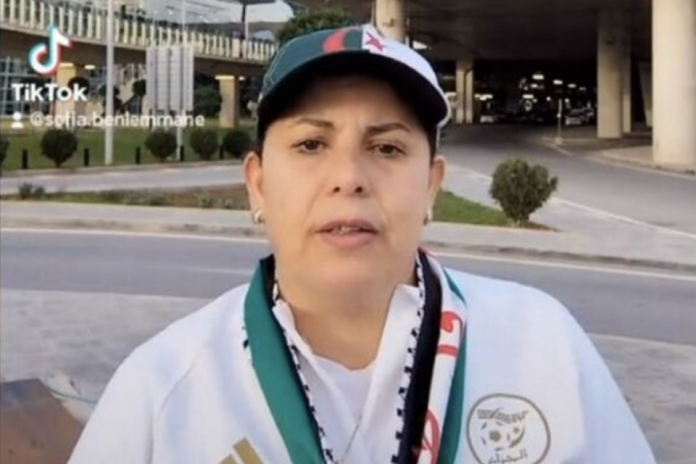Last Thursday, an arrest in Lyon brought attention to a growing concern: the troubling actions of some Algerian influencers on social media. Sofia Benlemmane, a Franco-Algerian influencer with over 300,000 followers on TikTok and Facebook, was taken into custody for “death threats and public incitement to hatred,” according to Nelson Bouard, interregional director of the national police.
Benlemmane’s arrest is part of a broader crackdown on influencers accused of spreading hate speech. In cities like Brest, Grenoble, and Montpellier, police have detained several other influencers in recent days for promoting violence, primarily targeting critics of Algeria’s military regime. These cases highlight the complex intersection of social media’s influence and its potential misuse for political agendas.
Known for her fiery live streams, Sofia Benlemmane allegedly directed explicit threats at online critics of the Algerian regime. In a live session in September, she reportedly said in Arabic: “F** your mother, you and your France”* and “I hope you get killed; I hope they kill you.”
Authorities argue that such inflammatory statements fuel a climate of hatred against regime opponents, exacerbating the already tense diplomatic ties between France and Algeria.
Benlemmane’s journey has been anything but ordinary. A former footballer, she gained notoriety in 2001 when she was sentenced to a seven-month suspended prison term and banned from stadiums for three years after storming the field at the Stade de France during a friendly match between France and Algeria.
Her activism has made her a prominent figure in pro-Algerian demonstrations and sports events. However, what puzzles many is the stark shift in her rhetoric. In 2020, she publicly criticized Algerian President Abdelmadjid Tebboune and denounced the regime’s authoritarian tendencies. Today, she is an ardent supporter of the government, prompting questions about the motivations behind her dramatic change in stance.
Benlemmane’s case is not isolated. Recent arrests of Algerian influencers residing in France for similar offenses underscore a larger problem. These incidents reveal two critical challenges: the need to regulate online content and the role of social media as a propaganda tool, potentially orchestrated to target exiled critics of the Algerian regime.
These incidents highlight the growing difficulty France faces in curbing online hate speech, especially when it intertwines with sensitive diplomatic issues. Social media platforms, while crucial for free expression, are under fire yet again for their role in amplifying extremist messages.
As Benlemmane’s custody continues, her case is poised to spark renewed debates about the responsibilities of influencers and digital platforms. It also raises deeper questions about the balance between freedom of speech, content moderation, and the broader political and social implications of such discourse.





